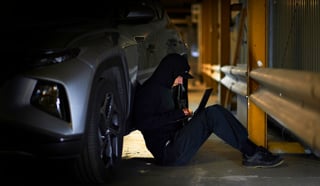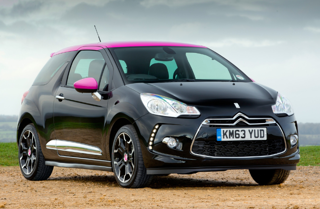Would introducing random testing for drugs (including alcohol) be a good idea?
Roger Singer The police already has the ability to stop anyone, anywhere, anytime, so formal random testing would add little. Knowing you may be stopped and tested much more regularly than at present would make all of us think about drink- and drug-driving more often.
How often have you been stopped and tested? The thought of being tested regularly is a good deterrent, so in that sense I would say it would be a good idea.
Matt Humphreys It is becoming more common in workplaces generally to undertake alcohol and drug testing for those working on sites.
They should consider extending this to driving on public roads if they don’t already do so.
Kevin Bourne This would keep everybody on their toes. There is a device that drivers must carry in France to measure alcohol levels. I would like to think that a ‘drugaliser’ is not far off, although it would be one serious piece of kit.
These devices could be used sporadically. I’m not sure how this sits with the legal side, but makes perfect sense.
What problems do you envisage for fleets that are trying to implement a drug-driving policy?
Roger Singer The time spent implementing or updating a policy is minimal. The cost of not doing it is far greater.
Training drivers can take as little as half-a-day and managers a day. This is an investment when you consider that there are 90,000 convictions every year and that the cost of replacing one of your drivers is reckoned to be 25% of their salary by the time you have advertised, interviewed, hired and trained them.
Matt Humphreys I don’t think it will be a huge challenge for most large high-risk companies to implement further controls to include drug-driving.
A large percentage of those companies will have some form of testing and training regime for alcohol and drugs in place already.
I think it is a bigger challenge for those companies who do not currently have a well-managed existing policy for dealing with alcohol and drugs as they will be developing it from a standing start.
Kevin Bourne Costs will always be a factor, but this is not about using the wrong colour ink in your printer: this is life and death.
Random workplace drug testing may bring initial resentment among employees who feel this practice violates their right to privacy.
But I feel that employers have a duty of care not only to their employees, but to every other road user including pedestrians.
Can you imagine the furore if your driver was involved in a serious accident, found to be on illegal drugs and the company had no drugs policy?
The FleetNews view
The introduction of a drug-driving offence is a positive move by the Government to crack down on needless deaths on the roads.
But, while the intentions are clear, there are clearly concerns about the implementation of this offence and how
it will be policed.
While drivers must be responsible for their own actions, it’s in fleets’ own interests to make sure that their operations are in order when it comes to complying with the new law, including offering training to drivers as well as managers.
No company wants to risk an at-work driver causing a serious accident while under the influence of drugs.






















Katie - 15/07/2014 11:56
Shocking that we don't seem to make the public aware of drug driving in the same way we raise awareness of drink driving. More people drive under the influence that you would think.